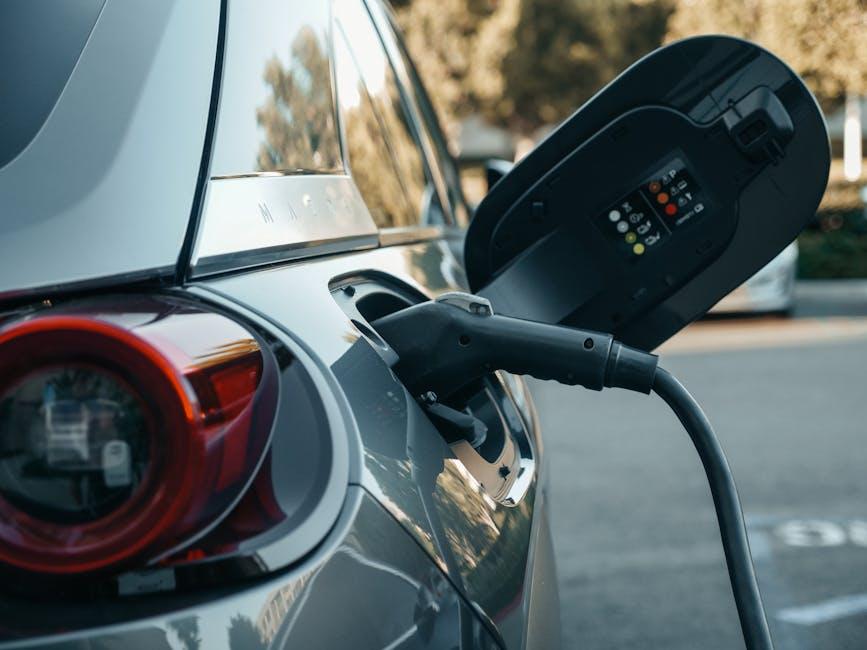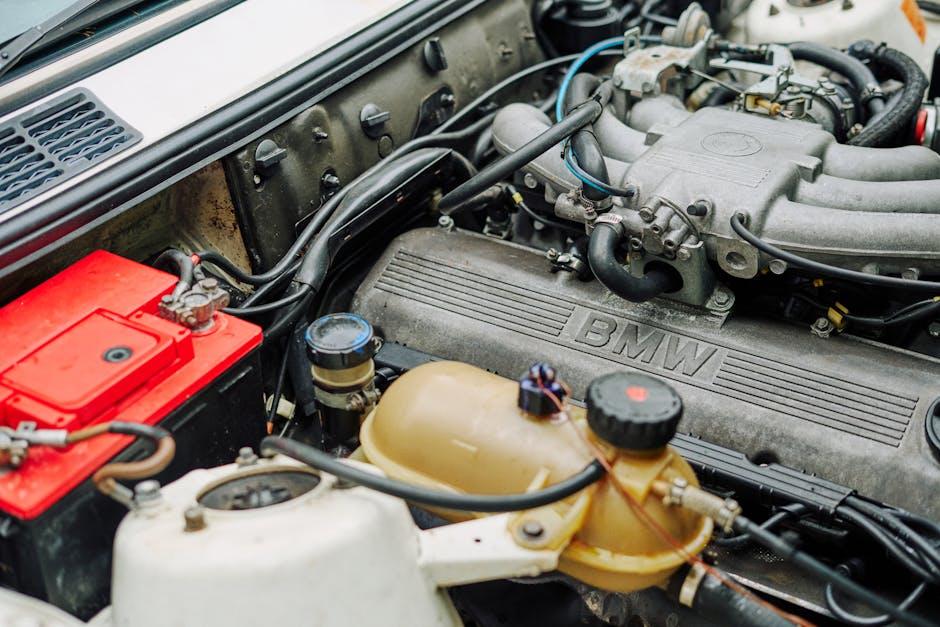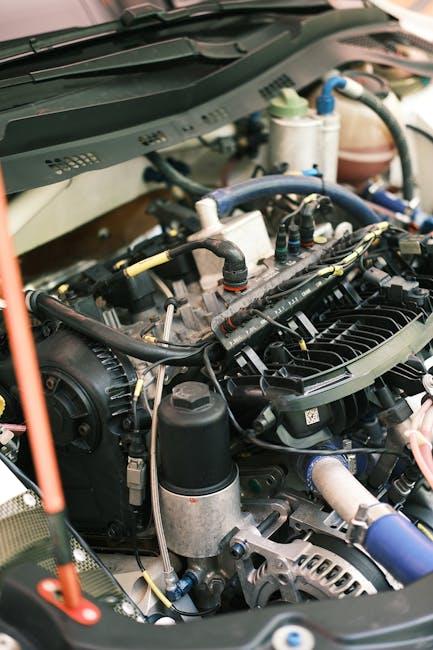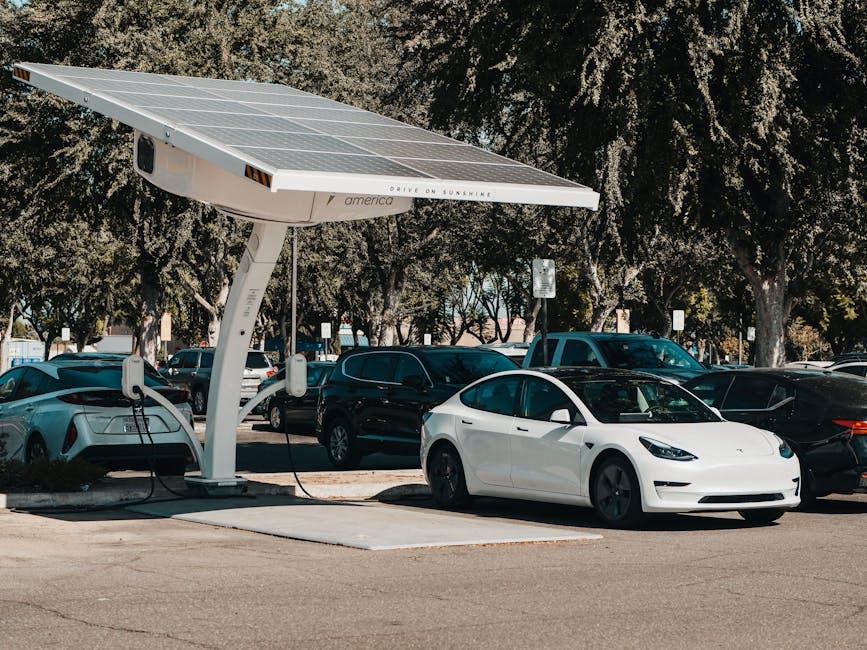Beneath the hood of your car lies a small but mighty powerhouse: the battery. It’s the silent spark that awakens your engine, the unseen pulse that powers your daily journeys. Yet, despite its vital role, the car battery is shrouded in misconceptions and half-truths that can leave drivers puzzled or misinformed. From myths about charging habits to misunderstandings about lifespan, these tales often lead to unnecessary worry or even costly mistakes. In this article, we’ll peel back the layers of myth surrounding car batteries, separating fact from fiction to help you keep your vehicle running smoothly and confidently.
Table of Contents
- Understanding the Lifespan of Your Car Battery Beyond Popular Beliefs
- The Truth About Leaving Your Headlights On and Battery Drain
- Debunking Cold Weather Effects on Battery Performance
- Myth or Fact The Role of Battery Maintenance and Charging Habits
- Exploring the Impact of Modern Automotive Technology on Battery Life
- Practical Tips for Maximizing Your Car Battery’s Reliability and Longevity
- Q&A
- In Conclusion

Understanding the Lifespan of Your Car Battery Beyond Popular Beliefs
Most drivers assume a car battery’s lifespan is almost fixed, usually around three to five years, but this common belief overlooks many critical factors that influence battery health. From temperature fluctuations to driving habits, various environmental and usage patterns can significantly extend or reduce the functional life of your battery. For instance, frequent short trips can prevent a battery from fully charging, while extreme heat accelerates the chemical reactions inside, leading to quicker degradation. Understanding these nuances empowers you to take tailored care measures rather than relying on generic longevity estimates.
To clarify the complexity, consider the following factors that affect battery lifespan:
- Climate Conditions: Hot climates typically shorten battery life due to faster evaporation of electrolytes.
- Driving Patterns: Longer, consistent drives keep the battery fully charged, while stop-and-go traffic can wear it down.
- Battery Maintenance: Regular checks for corrosion, clean terminals, and secure mounting influence durability.
- Electrical Load: Using multiple power-hungry features without the engine running strains the battery.
| Factor | Impact on Lifespan | Care Tip |
|---|---|---|
| Extreme Heat | Reduces life by up to 50% | Park in the shade or garage |
| Short Trips | Prevents full recharge | Occasionally take longer drives |
| Poor Maintenance | Increases failure risk | Inspect terminals monthly |

The Truth About Leaving Your Headlights On and Battery Drain
Contrary to popular belief, leaving your headlights on overnight does not always spell doom for your car battery. Modern vehicles often have built-in systems that automatically turn off the lights after a certain period to prevent battery drain. However, if your car lacks such features, the continuous power draw can indeed weaken the battery. But here’s the catch: a battery that’s already old or weak will be more susceptible to draining quickly than a healthy one.
To avoid unexpected battery issues, consider the following:
- Check if your vehicle has an automatic headlight shutoff system.
- Make it a habit to manually switch off your headlights when parking.
- Keep your battery maintained and replace it as recommended by the manufacturer.
- Use a portable battery charger or jumper cables for emergencies.
| Scenario | Battery Impact | Best Practice |
|---|---|---|
| Headlights left on in new car | Minimal drain; auto-shutdown active | Check owner’s manual |
| Headlights left on in older car | High risk of drain | Turn off manually |
| Battery over 4 years old | More prone to failure | Schedule replacement |

Debunking Cold Weather Effects on Battery Performance
While it’s often claimed that cold weather drastically reduces car battery performance, the reality is more nuanced. Cold temperatures do slow down the chemical reactions inside the battery, temporarily lowering its output capacity. However, modern batteries are designed to handle chilly conditions far better than older models. Rather than a sudden failure, you might experience a slight dip in power—enough that your engine cranks a bit slower, but not so much that the battery is “dead.” In short, cold doesn’t kill your battery instantly; it just demands more from it to start your car.
Several factors can influence how cold weather affects your battery, including age, charge state, and overall maintenance. Consider these points:
- Older batteries are more vulnerable to cold since their capacity has already diminished.
- Proper charge levels help the battery maintain performance despite the cold snap.
- Regular upkeep such as cleaning terminals and avoiding short trips improves cold-weather resilience.
| Temperature (°F) | Battery Capacity (%) | Engine Cranking Power |
|---|---|---|
| 75 (Room Temp) | 100% | Optimal |
| 32 (Freezing) | 80% | Reduced |
| 0 | 65% | Moderate |
| -20 | 40% | Low |

Myth or Fact The Role of Battery Maintenance and Charging Habits
Understanding the intricacies of battery maintenance and charging habits can largely influence the lifespan and performance of your car battery. Contrary to popular belief, it’s not necessary to fully discharge your battery before recharging it. Modern car batteries actually suffer when deeply discharged, as this can significantly shorten their overall life. Instead, maintaining a consistent charging schedule and avoiding letting the battery drop below 50% capacity helps preserve its cellular health and efficiency.
Many assume that leaving their battery on a trickle charger for extended periods will damage it, but this is another myth. In reality, smart chargers and maintainers are designed to prevent overcharging by automatically switching to a maintenance mode once the battery is fully charged. Here’s a quick comparison illustrating common misconceptions versus facts:
| Myth | Fact |
|---|---|
| Always fully drain battery before recharging | Partial discharges with regular charging prolong battery life |
| Trickle charging will ruin the battery | Smart chargers protect battery from overcharge damage |
| Car batteries don’t need maintenance if car is rarely used | Occasional charging prevents sulfation and capacity loss |

Exploring the Impact of Modern Automotive Technology on Battery Life
Modern vehicles are equipped with advanced technologies such as start-stop systems, regenerative braking, and energy-intensive infotainment units that directly influence battery lifespan. While these innovations aim to improve fuel efficiency and driving convenience, they also demand more from the car’s battery than traditional models. Contrary to popular belief, the battery is no longer just responsible for starting the engine but must support continuous electrical loads during idling and operation. Understanding the strain these features impose is essential for diagnosing battery issues and optimizing maintenance routines.
Here’s a quick look at how these technologies impact battery performance:
- Start-Stop Systems: Frequent engine restarts increase the demand for high CCA (cold cranking amps) and deep cycling capabilities.
- Regenerative Braking: Captures energy to recharge the battery but can create fluctuating charge patterns that stress battery chemistry.
- Advanced Infotainment & Safety Systems: Run continuously on battery power, accelerating the rate of battery depletion.
| Technology | Battery Demand | Impact on Life |
|---|---|---|
| Start-Stop | High CCA, frequent cycles | Shorter cycles but designed for longevity |
| Regenerative Braking | Variable charging patterns | Potential for uneven wear |
| Infotainment Systems | Continuous electrical load | Faster discharge rates |

Practical Tips for Maximizing Your Car Battery’s Reliability and Longevity
Ensuring your car battery lasts as long as possible starts with simple habits that often get overlooked. Avoid letting your battery drain completely, as deep discharges significantly reduce its lifespan. Try to keep your engine running for at least 20 minutes after starting the car, especially in cold weather, to allow the alternator to recharge the battery properly. Additionally, regularly cleaning the battery terminals can prevent corrosion, which impedes electrical flow and stresses the battery. A quick wipe with a mixture of baking soda and water can do wonders for maintaining a healthy connection.
Don’t forget to check your battery’s voltage periodically with a multimeter, aiming for a resting voltage between 12.4V and 12.7V. Keeping an eye on your vehicle’s electrical load can also help; excessive use of accessories like headlights or infotainment systems without the engine running will hasten battery drain. To illustrate, here’s a quick guide:
| Action | Effect on Battery |
|---|---|
| Short drives & frequent starts | Can prevent full recharge |
| Leaving lights on with engine off | Rapid battery depletion |
| Extreme temperatures without protection | Speeds up aging process |
- Store your car in a garage to shield the battery from temperature extremes.
- Use a battery tender or maintainer if your car sits for long periods without use.
- Replace batteries every 3-5 years to avoid unexpected failures.
Q&A
Q&A: Common Car Battery Myths Debunked
Q1: Is it true that car batteries always die in the cold?
A: Not quite. While cold weather can slow down a battery’s chemical reactions, making it harder to start your car, it doesn’t automatically mean your battery is dead. In fact, most modern car batteries are designed to withstand cold temperatures. Problems usually happen if the battery is already weak or old.
Q2: Should you jump-start a car battery if it’s completely dead?
A: Jump-starting a completely dead battery can sometimes work, but it’s not a guaranteed fix. If the battery is truly at the end of its life, jump-starting might only provide a temporary boost. It’s important to test the battery and, if necessary, replace it to avoid getting stranded.
Q3: Does turning off your headlights really drain your battery?
A: Headlights do consume battery power, but modern cars are designed to prevent this kind of drain when the engine is off. However, leaving lights or electronic accessories on for long periods without the engine running can definitely weaken your battery over time.
Q4: Can you recharge a car battery just by driving your car?
A: Driving can recharge your battery, but it depends on how far and how often you drive. Short trips might not give the alternator enough time to fully recharge a depleted battery. For a battery that’s deeply discharged, a proper charger is usually needed.
Q5: Are all car batteries the same and interchangeable?
A: No, car batteries come in different sizes, power ratings, and terminal positions. Using the wrong type can cause installation problems or even damage electrical systems. Always check your vehicle’s specifications before buying a replacement battery.
Q6: Does frequent starting of the car harm the battery?
A: Occasional starts are normal and accounted for in battery design. However, frequent short trips, where the engine doesn’t run long enough to recharge the battery properly, can shorten the battery’s lifespan over time.
Q7: Is it better to let a car battery completely die before recharging it?
A: Unlike some other rechargeable batteries, car batteries do not benefit from being fully discharged before recharging. In fact, deep discharges can damage lead-acid batteries commonly used in cars. It’s best to keep your battery charged and avoid letting it drop too low.
This Q&A clears up some popular misconceptions and helps you better understand the true nature of your car battery. Knowledge is power—especially when it comes to powering your ride!
In Conclusion
As we’ve journeyed through the twists and turns of common car battery myths, it’s clear that a little knowledge can go a long way in keeping your vehicle powered and reliable. Dispelling these misconceptions not only saves you from unnecessary hassle but also empowers you to make smarter choices for your car’s health. So next time your battery acts up, remember: understanding the facts is the real key to a smooth start. Drive on, equipped with the truth, and leave those myths in the rearview mirror.

